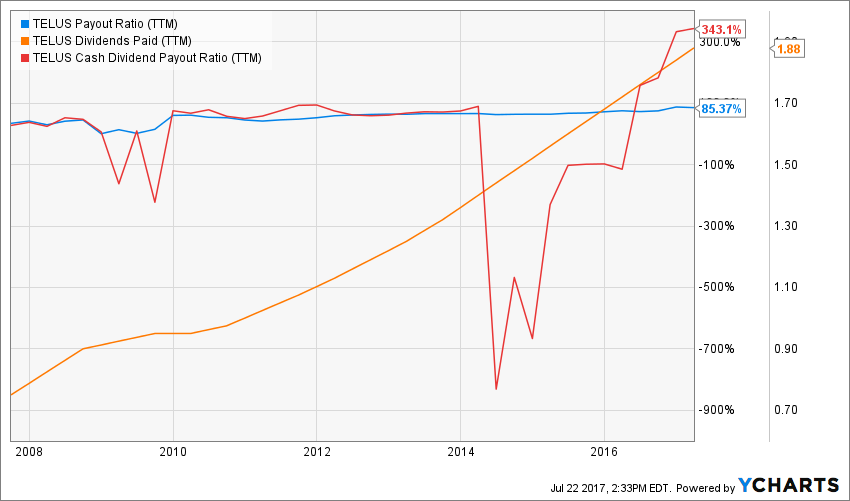Ford's Brazilian Legacy Fades: BYD's Electric Vehicle Push

Table of Contents
Ford's long-standing presence in the Brazilian automotive market is facing a significant challenge from the rapid rise of BYD's electric vehicles (EVs). This shift reflects a broader global trend towards electric mobility and highlights the changing dynamics of the Brazilian automotive industry. This article will explore the decline of Ford in Brazil and the aggressive expansion of BYD, focusing on the factors contributing to this dramatic market transformation. The rise of BYD electric vehicles in Brazil signifies a major shift in the automotive landscape.
Ford's Declining Market Share in Brazil
Reasons for Ford's Withdrawal
Ford's decision to cease manufacturing in Brazil in 2021 was a strategic move driven by several factors. The company cited high manufacturing costs, stiff competition from both established and emerging automakers, and import tariffs as major contributing elements. Changing consumer preferences, with a growing demand for SUVs and smaller, more fuel-efficient vehicles, also played a role.
- High manufacturing costs: Brazil's economic climate presented challenges, including inflation and currency fluctuations, impacting the profitability of Ford's Brazilian operations.
- Stiff competition: Ford faced intense competition from established players like General Motors and Volkswagen, as well as the rising popularity of Asian brands.
- Import tariffs: Brazil's import tariffs on vehicles and parts added to the cost of production and reduced competitiveness.
- Changing consumer preferences: The shift in consumer demand away from the types of vehicles Ford was producing in Brazil contributed to declining sales.
Ford's sales figures in Brazil steadily declined over the past decade. Popular models like the Ford Ka and Fiesta, once staples on Brazilian roads, were eventually discontinued. This withdrawal left a significant gap in the market, impacting employment and the overall automotive ecosystem.
Impact on the Brazilian Automotive Industry
Ford's departure had a substantial impact on the Brazilian economy and its automotive industry. The closure of plants resulted in significant job losses, impacting not only Ford employees but also those in the broader supplier network. Reduced investment in the sector also followed.
- Job losses: Thousands of direct and indirect jobs were lost due to plant closures and reduced production.
- Reduced investment: The exit of a major player like Ford discouraged further investment in the Brazilian automotive sector.
- Impact on supplier networks: Numerous suppliers relied heavily on Ford's business, leading to financial difficulties and potential closures.
- Increased competition for remaining manufacturers: The reduced number of manufacturers increased the competitive pressure on remaining players.
The ripple effect of Ford's exit highlighted the interconnectedness of the Brazilian automotive industry and the vulnerability of relying on a small number of major players.
BYD's Aggressive Expansion into the Brazilian EV Market
BYD's EV Strategy in Brazil
BYD, a Chinese automaker, has capitalized on Ford's departure and the growing demand for electric vehicles in Brazil. Their strategy hinges on offering affordable EVs, forging strategic partnerships, investing in charging infrastructure, and implementing aggressive marketing campaigns.
- Focus on affordable EVs: BYD's pricing strategy aims to make EVs accessible to a wider segment of the Brazilian population.
- Strategic partnerships with local distributors: Collaborations with established distributors provide BYD with access to established sales and service networks.
- Investment in charging infrastructure: BYD is actively participating in developing the charging infrastructure crucial for EV adoption.
- Aggressive marketing campaigns: Targeted marketing campaigns aim to increase awareness and desirability of BYD's electric vehicles in Brazil.
Models like the BYD Tang and BYD Han have already gained traction in the Brazilian market, showcasing their competitive features and design. BYD is also exploring options for expanding its manufacturing or assembly facilities in Brazil to enhance local production and reduce import costs.
BYD's Competitive Advantages
BYD enjoys several competitive advantages in the Brazilian EV market. Their vertical integration, competitive pricing, advanced battery technology, and alignment with government incentives contribute to their market dominance.
- Vertical integration (battery production): BYD's control over the battery supply chain allows for cost optimization and ensures a reliable supply of high-quality batteries.
- Competitive pricing: BYD's pricing strategy makes its EVs more accessible compared to competitors.
- Advanced battery technology: BYD's Blade Battery technology offers improved safety and performance.
- Strong government support for EVs in Brazil: The Brazilian government is actively promoting EV adoption through incentives and subsidies, creating a favorable environment for BYD's expansion.
These advantages allow BYD to effectively compete with both established and emerging players in the Brazilian automotive market.
The Future of the Brazilian Automotive Market
The Rise of Electric Mobility in Brazil
The Brazilian EV market holds significant growth potential. Increasing consumer awareness of environmental concerns, government incentives, and investments in charging infrastructure are key drivers of this growth.
- Increasing consumer awareness of EVs: Brazilians are becoming more aware of the benefits of electric vehicles, including lower running costs and reduced emissions.
- Government incentives to promote EV adoption: Government policies are creating an encouraging environment for EV adoption.
- Investment in charging infrastructure: Investments are being made to expand the availability of public charging stations across the country.
Market projections suggest significant growth in EV sales in Brazil over the next few years, indicating a promising future for electric mobility.
Challenges and Opportunities for BYD
Despite its strong position, BYD faces challenges in sustaining its market leadership. Maintaining a strong dealer network, managing supply chains, and addressing consumer concerns about charging infrastructure will be crucial.
- Competition from other EV manufacturers: The EV market is attracting increased competition from both domestic and international players.
- Building a strong dealer network: Establishing a comprehensive and reliable dealer network is essential for sales and after-sales service.
- Addressing consumer concerns about charging infrastructure: Addressing range anxiety and ensuring the availability of charging infrastructure are critical.
- Managing supply chains: Efficiently managing supply chains, particularly in the context of global disruptions, is vital for consistent production and delivery.
Navigating these challenges will determine BYD's ability to maintain its leading position in the evolving Brazilian automotive market.
Conclusion
The departure of Ford from Brazil marks a pivotal moment, creating an opening for the rapid expansion of BYD and its electric vehicles. BYD's competitive pricing, advanced technology, and strategic approach position it for significant success. While challenges undoubtedly exist, the future of the Brazilian automotive industry is increasingly electric, with BYD playing a central role. To stay updated on the dynamic changes in the Brazilian EV market and BYD's progress, continue to follow updates on BYD electric vehicles Brazil and related keywords.

Featured Posts
-
 Telus Q1 2024 Profit Rises Dividend Increased
May 13, 2025
Telus Q1 2024 Profit Rises Dividend Increased
May 13, 2025 -
 Dua Lipa And Sir Ian Mc Kellen Lead Charge Against Ais Threat To Copyright In The Uk
May 13, 2025
Dua Lipa And Sir Ian Mc Kellen Lead Charge Against Ais Threat To Copyright In The Uk
May 13, 2025 -
 Earth Series 1 Inferno A Documentary Review
May 13, 2025
Earth Series 1 Inferno A Documentary Review
May 13, 2025 -
 Mosque Under Scrutiny Police Investigation Launched Amidst Mega City Project
May 13, 2025
Mosque Under Scrutiny Police Investigation Launched Amidst Mega City Project
May 13, 2025 -
 The Uneven Application Of Sanctions A Critical Look At Britain And Australias Myanmar Policy
May 13, 2025
The Uneven Application Of Sanctions A Critical Look At Britain And Australias Myanmar Policy
May 13, 2025
